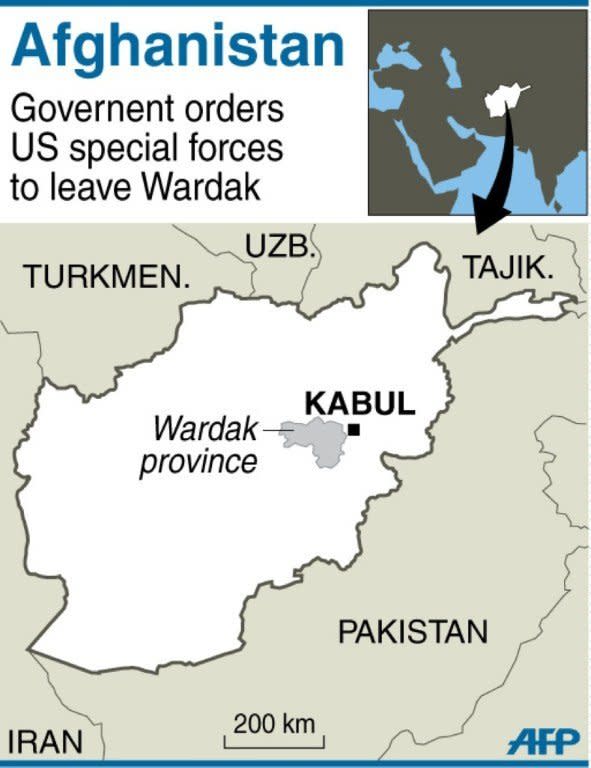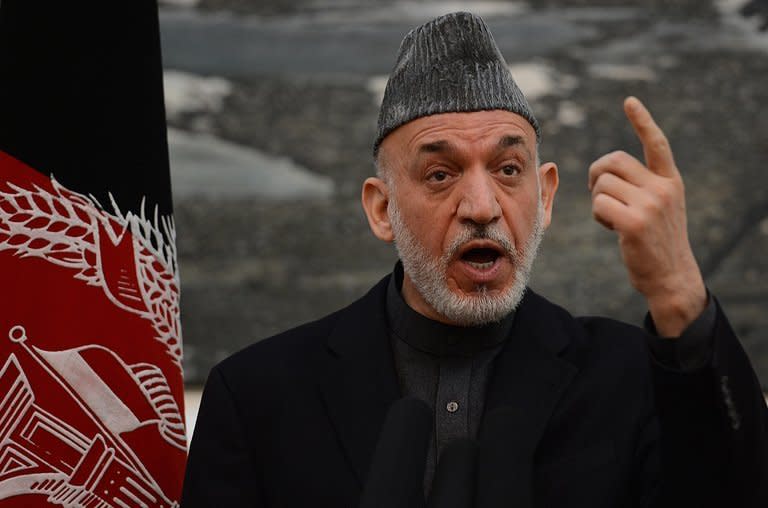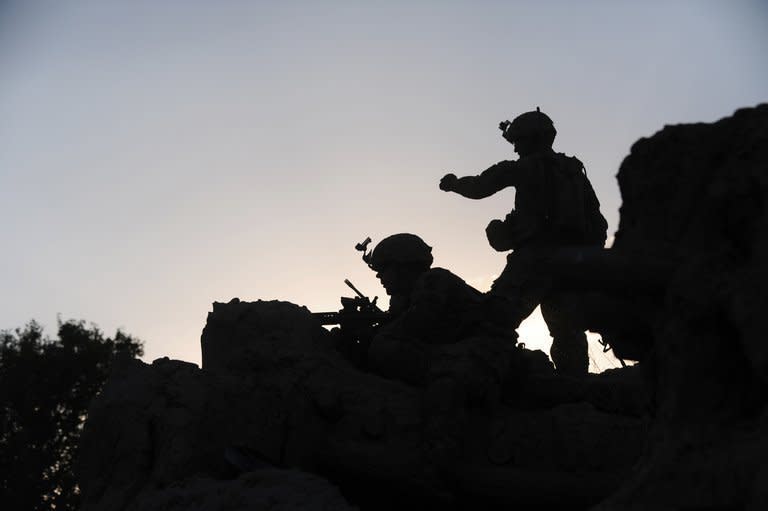US special forces told to leave key Afghan province
Afghanistan's president has ordered US special forces to leave a strategic province as he seeks tighter control over Afghan militia, exacerbating tensions before the 2014 withdrawal of NATO troops. Hamid Karzai on Sunday gave American special forces two weeks to pull out of Wardak, a hotbed of Taliban activity on the doorstep of Kabul, accusing Afghans they work with of torture and murder that has incited local hatred. It remained unclear what led Karzai to issue the order, two US officials said. "We're not aware of any incident that would have generated this kind of response," one official, who spoke on condition of anonymity, told AFP. At a news conference, spokesman for the US-led NATO mission Brigadier General Gunter Katz said: "We're looking at those allegations, we didn't find any evidence and we will talk to our colleagues and Afghan partners to find a solution." The Pentagon confirmed that a special panel of Afghan officials and officers from the NATO-led International Security Assistance Force (ISAF) were looking into Karzai's allegations. "We're trying to seek clarity from the government of Afghanistan," spokesman George Little told reporters. Asked if the United States would pull out its elite special operations units from the province, Little said: "It's premature to speculate on what the outcome of our discussions would be." Wardak is a deeply troubled flashpoint where a Chinook helicopter was shot down by the Taliban in August 2011, killing eight Afghans and 30 Americans, in the deadliest single incident for American troops in the entire war. Analysts said the order underscored Kabul's growing distrust of international troops and their desire to control local militia, who are trained by the Americans but operate without government control in the war against the Taliban. Relations between Karzai and Washington have long been troubled, and with the bulk of NATO's 100,000 combat soldiers due to leave and the Afghan president to step down next year, there is huge uncertainty about the future. "It appears to be an on-the-spot, emotional decision, based on a long-standing frustration that there are forces... Afghan and international, that are uncontrollable," said Martine van Bijlert of the Afghanistan Analysts Network. The New York Times quoted Afghan officials as saying the order was taken as a last resort after they had tried and failed to get the coalition to cooperate with an investigation into claims of murder, abduction and torture. The presidency accused armed individuals working with US special forces of "harassing, annoying, torturing and even murdering innocent people". It cited, for example, a student who was taken away at night from his home and two days later was found dead with torture wounds and his throat cut. Kabul did not specify which groups were responsible, but the United States is understood to have trained a variety of local militias, a number of which reportedly operate beyond the control of the Afghan government. Karzai's order was issued amid sensitive discussions over the size and role of a residual force that could remain in Afghanistan after 2014 to focus on training and counter-terrorism operations. Kabul and Washington are still negotiating an agreement on the legal status that could allow an estimated 8,000 to 12,000 American troops to remain. On February 16, Karzai also restricted Afghan forces from calling in NATO air strikes -- an important weapon in the fight against insurgents -- amid concern over civilian casualties. Some say the latest order exemplifies a conflict that many Afghans feel towards foreign troops -- that they are needed to counter the Taliban, but that civilian casualties and detentions can also make them part of the problem. A spokesman for Wardak's governor said local residents have complained for two and a half months about US special forces and "their illegal Afghan armed forces arresting, torturing and even killing villagers". "We want our Afghan security forces to take control of this province and replace these US special forces," the spokesman, Ataullah Khogyani, told AFP. In the neighbouring province of Ghazni, dozens of protesters shut down the Kabul-Kandahar highway for around three hours, accusing the US-trained Afghan Local Police (ALP) of harassment and beatings, officials and witnesses said. The ALP is often accused of thuggery and operating outside the law, and its reputation was further damaged on December 24 when an officer shot dead five of his colleagues.





